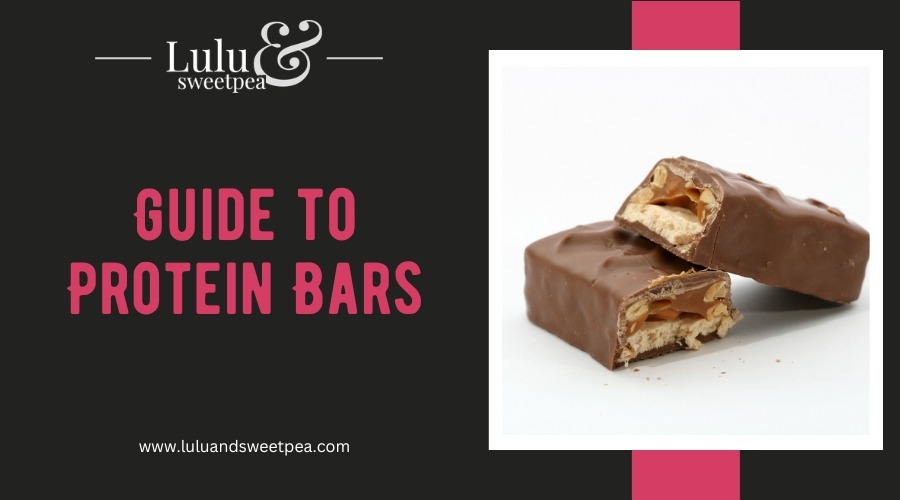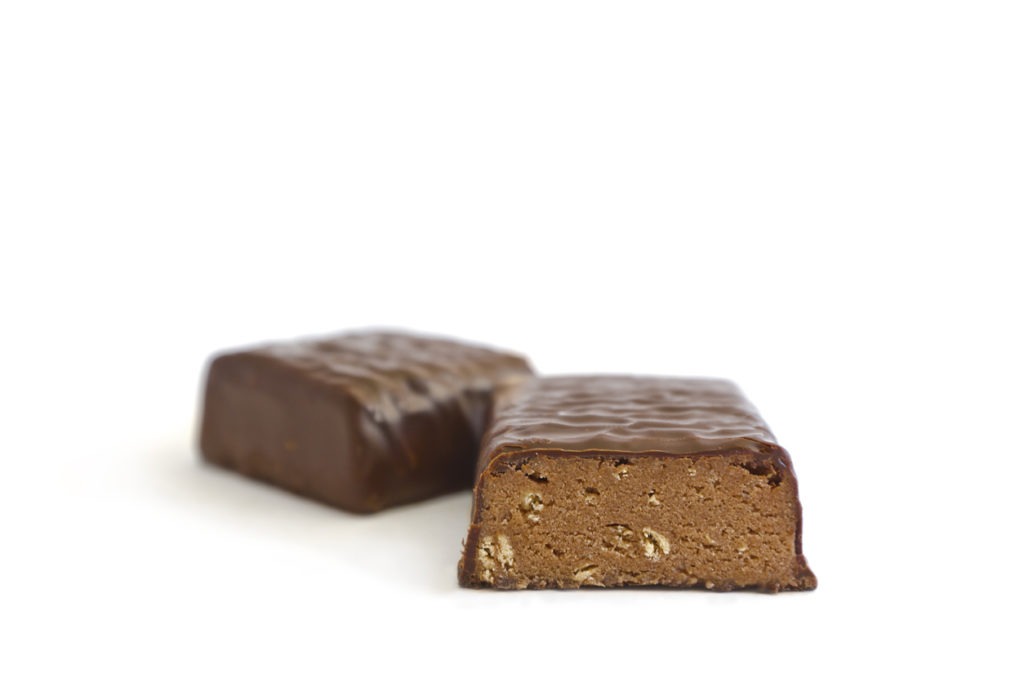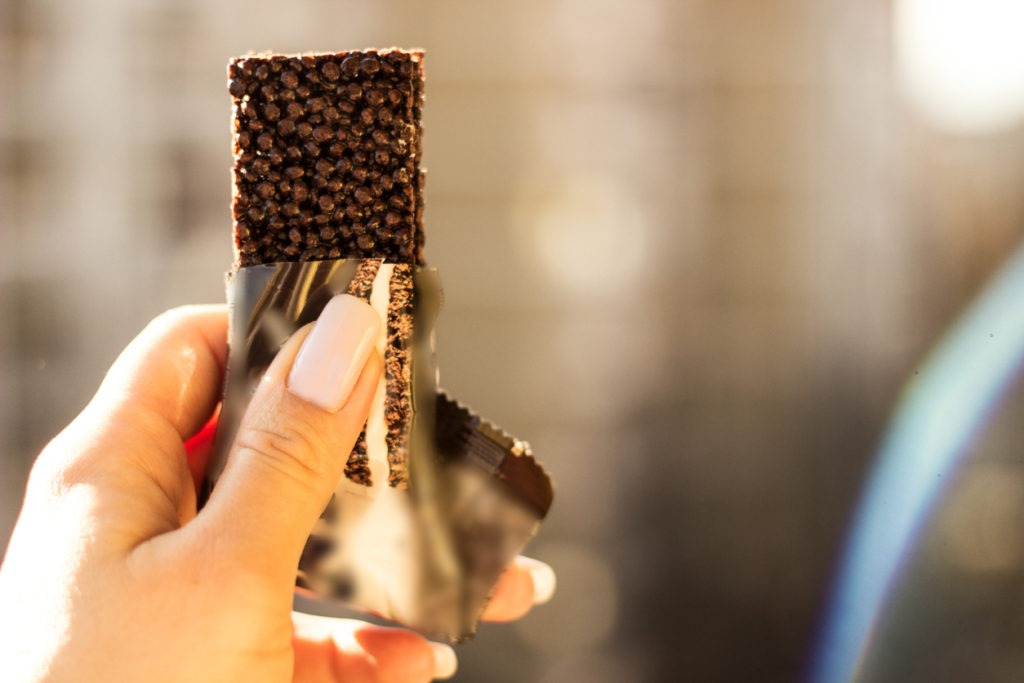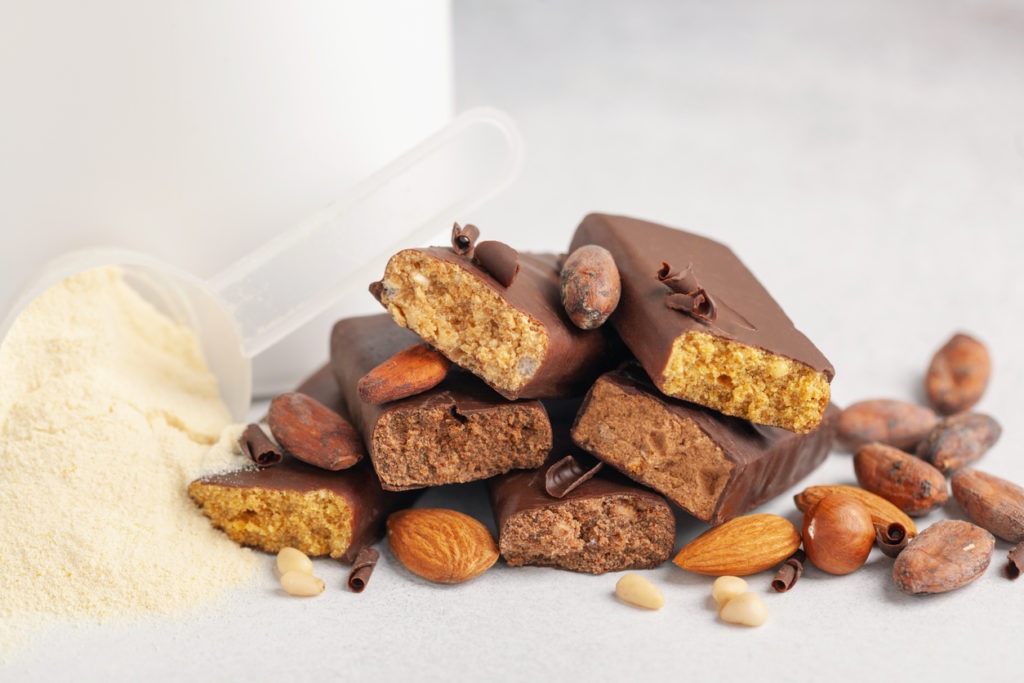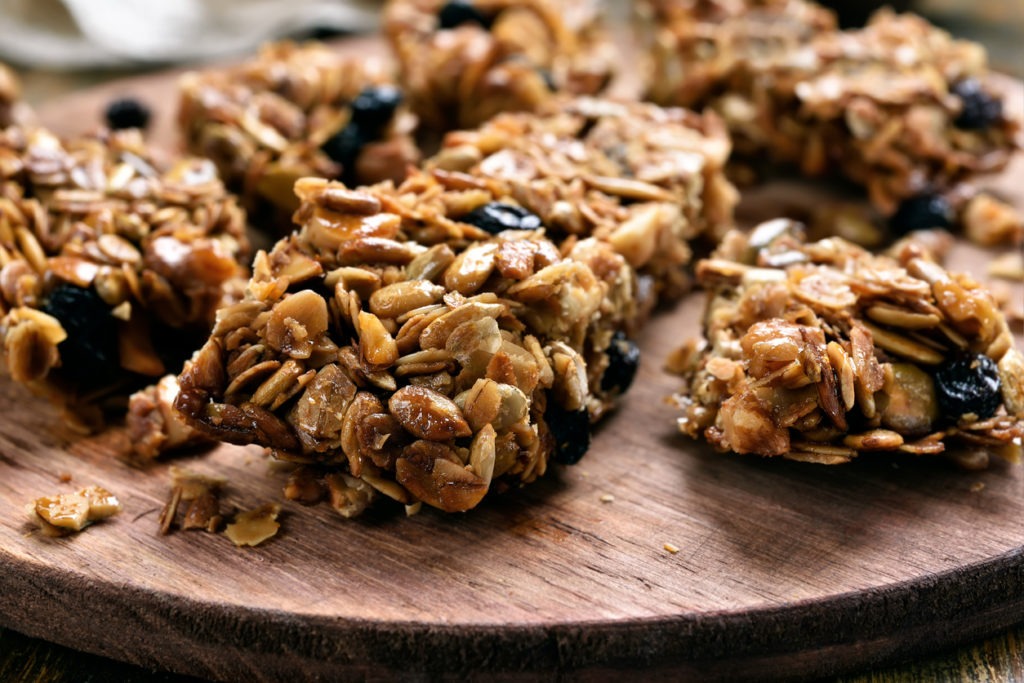Working out or exercising well and seeing results in terms of physical fitness takes considerable time. It’s not uncommon for people to devote a great deal of time to physical activity without considering the food they consume daily. If they maintain a diet of several unhealthy meals, their exercise efforts will be in vain.
Maintaining your fitness level requires you to plan what you eat meticulously and engage in regular physical activity. One of the cornerstones to a healthy body is eating a diet that includes a variety of nutritious foods; fortunately, many diet recommendations are available online that may help you get started on a healthier eating regimen.
Most diet advice emphasizes making or cooking your meals so that you can control what goes into them, but this isn’t always possible, especially on hectic days when we may rather spend our limited spare time hitting the gym.
Fortunately, we can get the nutrients our bodies need to fuel high-intensity activities in one convenient package: a nutrition bar. However, protein bars are superior to other types of energy bars for use during exercise. If you want to learn more about protein bars, then keep reading this page.
What Are Protein Bars?
Protein bars are a type of nutrition bar with a high protein content relative to other macronutrients like carbs and fats. They are a popular snack because they provide quick and easy access to healthy nutrients. People who lead active lifestyles often find them convenient since they help them get the protein and many other nutrients they need without interrupting their day.
Carbohydrates, protein, vitamins, and minerals may all be easily added to your diet with the help of protein bars. They can help control eating, provide energy during exercise, or repair muscle tissue afterward. Protein bars are marketed to busy people who need a quick and easy way to acquire their daily protein intake.
Protein bars vary widely in their nutritional content, even among tastes of the same brand. Knowing that not all protein bars are made equal is crucial because many protein bars are available.
Nutritional Profile of Protein Bars
Due to their varied contents, protein bars’ nutritional profiles might vary significantly between brands. Many protein bars may be created using nuts, seeds, and whole grains like quinoa or oats. Protein bars are not only made of protein. Aside from protein and carbohydrates, many protein bars are also a rich source of micronutrients like potassium, calcium, iron, and other vitamins.
However, you must be careful of protein bars that use problematic sweeteners that may add extra fructose to your diet. Sweeteners like fructose syrups may increase your risk of developing obesity, fatty liver, and even diabetes when ingested in large quantities. They also frequently employ significant levels of added sugar.
Protein comes from a variety of sources. While some bars employ dairy proteins from milk, yogurt powder, or dairy products like casein and whey, others use plant-based ingredients like brown rice or pea. Some of them use nuts and seeds, while others use egg whites as their primary source of protein.
One thing you need to be careful of is that some protein bars employ a proprietary combination of ingredients and exclude any information about it from the package while reading the ingredient labels.
Professional dieticians recommend that the finest protein bars for bug-out bags and fast pick-ups have a minimum of 8 grams of protein, 3–10 grams of fiber, and a maximum of 13 grams of sugar per serving. Grass-fed meats, nuts, egg whites, seeds, and other high-quality protein sources should be used. Natural, not artificial, sweeteners should be used since sugar alcohols can irritate the stomach and produce digestive problems. Vegetable oils shouldn’t be used for fat; they should come from nuts and seeds. Because synthetic fiber can result in gas and bloating, fiber should be natural.
Benefits of Protein Bars
Protein bars may provide several health advantages. Primarily, protein bars are ideal for weight reduction because of the positive effect protein has on metabolism, its ability to burn calories, and its ability to suppress hunger. Protein helps suppress the body’s hunger hormone, allowing you to eat less without trying.
Protein Bars for Weight Loss
Many people use protein bars as a supplement to lose weight. When trying to lose weight, substituting a protein bar for a traditional meal is a good option since it allows you to manage your calorie intake. Moreover, when you have met your weight reduction objectives, protein may help you retain your strength, muscle, and body composition, making protein-filled foods a long-term healthy option.
Some research has found that increasing protein intake can help people lose weight healthily. This is probably because of the satiating properties of a protein, which might reduce overeating by satiating your hunger. However, if you decide to use protein bars for this purpose, remember that good weight reduction also necessitates a well-rounded diet and frequent exercise.
Protein Bars for Weight Gain
Protein bars, like any other meal, can contribute to weight gain if consumed as part of a hypercaloric diet. You will put on weight if you consume more calories daily than you burn off through activity. Protein bars might be valuable to your diet if this is your objective.
Calorie-dense foods like protein bars make it simple to increase caloric intake without significantly increasing food intake overall. Protein bars with healthful components are preferable to those with plenty of sugar and chemicals, even if weight gain is the goal.
Protein Bars as a Meal Replacement?
A protein bar might be an excellent choice, whether you’re short on time, hungry between meals, or trying to watch your calorie intake so you may slim down. Some protein bars on the market are better than others and can serve as a suitable meal replacement when you’re in a rush.
However, there are several benefits to eating regularly rather than relying on protein bars. Protein bars may be fortified with vitamins and minerals, but they shouldn’t substitute for a balanced meal plan. When it comes to avoiding chronic illnesses like cancer, nothing beats a diet based on whole foods rather than supplements because of the superior quality of the nutrients they give, particularly the phytonutrients contained in plant foods.
As mentioned, there are only certain times when protein bars might be a good substitute for a complete meal. The right protein bar can fill you up whether you’re on the road or know you’re going to be late for lunch.
Protein Bars Can Give Energy Boosts
Whether we’re hitting the gym or just going about our daily lives, our bodies require sustenance. The most incredible protein bars provide you with the energy level you need to get through the day and help maintain a steady level of glucose in your blood. Motive and concentration are both boosted as a result. They help foster a more active lifestyle and increase stamina.
Stress is reduced, which is a massive plus with several positive consequences on our health. A protein bar is a good option if you’re in a rush but still need some fuel. It’s the most effective cure for lethargy and sleepiness.
Protein Bars for Bulking Up
Because amino acids, which are protein’s building blocks, aid in tissue repair and maintenance, protein plays a crucial role in the process of gaining muscle mass. Muscles suffer microscopic tears during exercise, and consuming protein afterward aids in repair and restoration.
A high-protein diet may help you achieve your fitness goals if you already have a lot of muscle mass or want to increase your muscle mass through exercise. Furthermore, taking a protein supplement may boost muscle growth and performance when your total physical activity and nutrition levels are sufficient.
Protein Bars Are a Handy Nutrient Source
Protein bars are a great option when you need a quick, healthy snack. They are flavorful and long-lasting, making them a practical stockpile addition.
A balanced protein bar with a decent quantity of protein and high-quality ingredients can be a good choice if you’re searching for something to eat for lunch. Due to their high protein and carbohydrate content, protein bars may be a useful pre- or post-workout snack, boosting your energy before a workout or assisting with muscle recovery afterward.
Additionally, some protein bars contain dietary fiber, which is key for a healthy digestive system and may curb snacking between meals. Lastly, eating protein bars may satisfy your daily needs for vitamins and minerals.
Protein Bars Offer a Balanced Nutritional Plan
Overall, protein bars are a convenient way to get your body’s protein and other nutrients. When paired with resistance training, increasing muscle growth and decreasing fat storage may be accomplished by eating an adequate amount of high-quality protein, such as that contained in the bars.
Consuming a protein bar can assist prevent muscle loss that happens with calorie restriction, as is common while dieting. You may use them instead of lunch or supper if you’re short on time because they offer all the protein and minerals your body needs. It can stand in for meals that don’t provide enough of the proper nutrients. Protein bars can protect you against malnutrition-related muscular atrophy. By doing so, you can shed pounds without suffering muscle loss.
Protein Bars Enhance Protein Intake
All throughout our lives, protein plays a crucial role in developing, maintaining, and repairing our muscle tissue. If we want to ensure that our bodies are getting enough protein, we should stock up on protein-rich snacks that can be taken quickly and efficiently when a full meal isn’t an option or when we need a pick-me-up in the middle of the day. Due to the convenience of protein bars, which can be eaten on the go without any further preparation, this is now achievable.
Protein amino acids are essential for proper bodily function, so getting enough of them daily can help keep you from feeling run down and weak. Protein bars are a convenient and easy way to supplement your diet with protein and calories without dining out or making extra excursions to the grocery store. Protein is crucial for muscle mass, maintaining leanness, and improving overall fitness.
When you don’t have the time to prepare time-consuming but nutritious meals such as egg white omelets with spinach leaves or grilled chicken breast sandwiches, etc., protein bars can be a simple and convenient way to increase the amount of protein you consume daily. Muscle growth and sustained alertness are two of the many benefits of eating a protein bar.
Choose the Best Protein Bar For You
There are a few important considerations to address while shopping for a high-quality protein bar.
The first step is to read the label and ensure you get the proper nutrients. A protein bar that is also heavy in sugar and calories is not a healthy option. Try to choose protein bars that are low in sugar and calories instead.
Plus, always double-check the list of ingredients. Artificial sweeteners, high-fructose corn syrup, and Trans fats are not beneficial for you, and neither are any of the other unnatural ingredients commonly found in protein bars. Try to find protein bars with whey or pea protein as an ingredient. Additionally, try to choose bars that include at least 3g of fiber per serving.
Thus, a protein bar has to comprise 20 grams of protein, about 5 grams of sugar, and about 10 to 25 grams of carbs. A good goal is to have between 5 and 10 grams of fat every 60 grams and 6 grams of fiber per 100 grams. Furthermore, avoid chocolate-covered products that include palm oil or kernel oil.
Last but not least, you should give the protein bar a try before buying it. Choosing a protein bar that you actually like eating is a must because not all of them have a great flavor.
Choose High-Protein but Low-Carb Bars
Protein, without question, is crucial to good health. A high-protein diet is vital for normal skeletal and muscular development. Science has shown that eating a diet high in protein can reduce weight and lower blood pressure, helping the body and its metabolism. The American Heart Association reports that a low-sodium, high-protein diet reduces blood pressure.
If you have diabetes, you should also choose a low-carb protein bar since it will help control your blood sugar levels. Especially after a workout, the protein will be better used to facilitate muscle repair than fueling any further activity.
High-protein, low-carbohydrate bars can satisfy your hunger without compromising your healthy lifestyle. Eating high-protein bars will help heal damaged tissues and reduce your desire for sweets.
Watch Out For Low-Carb, Low-Sugar Protein Bars
Even though low-carb protein bars are recommended, you still need to watch out for some commercial bars that claim such. How protein bars impact your blood sugar levels will determine how often you can eat them. Then, what’s the big deal? The glycemic index of a protein bar cannot be determined by looking at the “Nutrition Facts” label alone.
Many commercial protein bars can raise your blood sugar despite their claims of having low net carbohydrates and sugar content. Your body’s glucose response may be misleading if you eat them believing they are low in carbohydrates and sugar.
When we take in any kind of drink or food, our blood sugar levels respond by rising. It all depends on how much sugar we ingest.
It is common knowledge that consuming a large quantity of carbohydrates can cause a rise in blood sugar, but carbohydrates are by no means the only factor to blame. The consumption of fat and protein can also cause an increase in blood sugar. However, the surge in blood sugar levels caused by fats and proteins is not as severe as that caused by simple sugars and carbohydrates.
Blood sugar can also be affected by factors other than diet. High levels of stress and inactivity are also correlated to the onset and development of type 2 diabetes.
Although it’s conventional to say so, the greatest approaches to managing high sugar levels in your bloodstream are still the appropriate food and the suitable exercise.
Seek expert guidance if you can’t seem to zero in on the ideal protein bar free of carbohydrates and sugar. One source may be a trained nutritionist or dietitian, who could advise you on the finest low- or no-sugar, high-protein bars available.
Homemade Protein Bars
Commercial protein bars are not the only option when you need one — you can also make protein bars at the convenience of your home! Making your own protein bars at home has the advantage that you may tailor the ingredients to your specific needs. When you can easily make protein bars at home, there’s no reason to buy them. Some ideas for homemade protein bars are provided below:
Coconut Cashew Protein Bars. These bars take no time in the kitchen to prepare and are delicious. These bars are delicious because of the other ingredients like pumpkin protein powder, egg whites, coconut butter, dates, sweeteners, and coconut cream. In addition to being cheap, the ingredients are also not hard to come by.
Low-Carb Oat and Chocolate Protein Bars. Dieting doesn’t need to give up chocolate entirely. Oats, protein powder, your preferred nut or seed butter, brown rice syrup (a sugar alternative), and dairy-free chocolates go into making these sugar-free, low-carb protein bars. They’re nutritious yet taste incredibly rich.
Low-Carb Peanut Butter Protein Bars. These peanut butter protein bars are chewy, fudgy, and tasty, providing a satisfying snack after exercise or before another activity. You might also have that as a delightful, guilt-free snack between meals. In addition to the high protein content of peanut butter on its own, you may increase the protein content by mixing in some protein powder. Use any low-carb sweetener of your choice, such as those made from fruits like monk fruit, as a sugar alternative.
Commercially available protein bars are convenient, but many include allergies or components that are not good for you. It’s possible that you might save money by manufacturing your own bars at home if you want to avoid buying these.
Meat Bars: The New Protein Bars?
View this post on Instagram
As mentioned earlier, granola and oatmeal protein bars are typical go-to’s for busy folks needing a quick bite or meal replacement. But there are meat bars if you like something more substantial than a snack bar. Many companies now offer novel combinations of dried meats that may be easily transported as a snack. You can get them in various types of meat, including beef, pig, chicken, and even deer.
Meat bars are an excellent low-calorie source of protein, omega-3s, iron (which helps prevent anemia), vitamin B12 (which boosts energy), and choline (which aids in weight loss). Ingredients often include grass-fed or organic beef, herbs, spices, and dried fruit. Indeed, these meat bars are a reason for celebration among carnivores everywhere.
Why Some People Prefer Meat Bars
Meat bars are often raw and unprocessed, made with organic ingredients like grass-fed beef or cage-free poultry, seasonings, and vegetables. Additionally, meat bars’ excellent taste is a significant selling point for many consumers. The meat bar is a cross between meat jerky and a bar of candy. These bars are soft and chewy, tasting like real meat while also having a sense of sweetness from raw fruit and vegetables. What makes meat bars superior to other types of protein bars is their real meatiness. This also means no added or processed whey protein, sugar alcohols, or soy protein isolate.
Overall, protein bars are a handy food option that may help you meet your daily needs for carbohydrates, protein, vitamins, and minerals. In addition to suppressing hunger, these supplements can provide energy during exercise and aid in the recovery of damaged muscles.
Meat or whey, we all have our preferences regarding the type of protein bar we want to eat. While there are many benefits to eating protein bars, it’s important to remember that not all bars are created equal. Additionally, we must exercise caution while selecting protein bars. If you want a healthy alternative to store-bought protein bars, homemade is a great choice.
